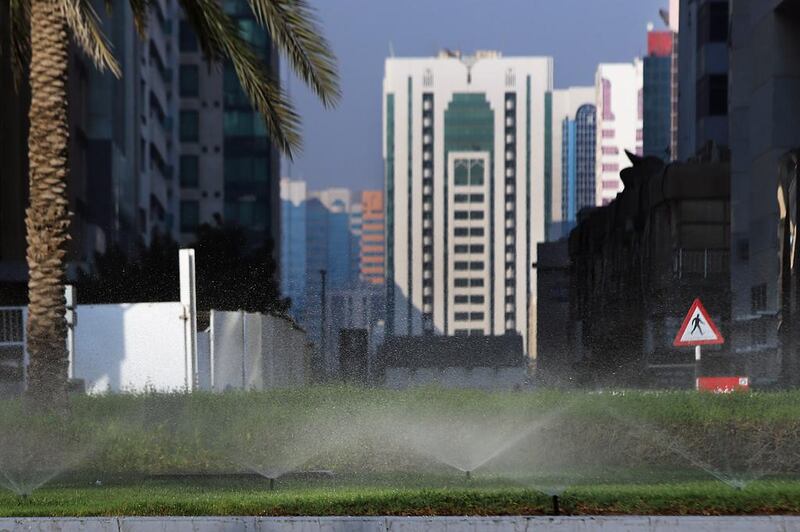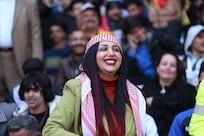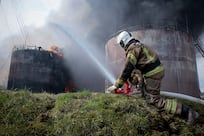Dubai // Upgrading safety standards and boosting public awareness will help to increase the share of reclaimed water used in agriculture.
The issue is particularly important for countries in the Middle East, many of which are facing severe water shortages, experts said on Tuesday at a conference in Dubai, organised by the Ministry of Environment and Water and the International Centre for Biosaline Agriculture.
The UAE, for example, produces the vast majority of its potable water through desalination, but the Government is now concerned about the high energy cost and other environmental impacts of the process.
Treating sewage effluent to the extent that it is safe for use in agriculture has been technologically possible for decades, they said.
“Reusing waste water is no longer a luxury, it is a need, especially in an area that is infamous for its water scarcity,” said Dr Basel Al Yousfi, director of the Regional Centre for Environmental Health Action at the World Health Organisation. “I do not think we can afford to use any drop of water without maximum utilisation.
"We need to work not only on capacity building and working with government but also we need to work with the public to increase awareness that with enforced regulations and standards there is nothing wrong with reusing reclaimed waste water," he said.
The first international WHO guidelines on the issue were put forward in 1979 and updated a decade later.
“They both were traditional guidelines that were based on concentrations and specifications rather than the new concept that was put forward in 2006, which is based on ... risk assessment and management,” Dr Al Yousfi said.
“Basically, no one size fits all. If our goal and target is to protect human health, then we will be looking at the life cycle of waste-water reuse from the moment of waste-water generation to the treatment, if needed, to the irrigation, to the production of the crops,” he said.
The new approach distinguishes between crops that are produced to be eaten raw, and crops that are cooked, as well as crops grown for other uses, such as cotton or plants used for landscaping.
“Every case has a different way of handling rather than having a specification that is everything in one limitation,” Dr Al Yousfi said.
While the WHO is working to promote the concept of risk assesment and risk management, it is still fairly new in the region, he said.
“It has been accepted in the West ... much more than it has been accepted here in the region, but we are working with governments and member states to increase awareness and also increase acceptance of such a concept,” he said.
Making alternative water sources available for agriculture is important considering new pressures on water resources from increasing urban populations, industry and energy production, said Steven Schonberger, sector manager for water and agriculture for the Middle East and North Africa Region at the World Bank.
Agriculture takes about 70 per cent of total water withdrawal globally and the proportion is as high as 95 per cent in some developing countries. In the Middle East and North Africa, only 55 per cent of waste water is treated, and of that only 15 per cent is formally reused.
The UAE and some other GCC countries, as well as Jordan, are exceptions, with very high rates of treating and reusing waste water.
Mr Schonberger said reclaiming waste water was about better management of the water cycle.
“Whereas before that waste water would have gone into an aquifer or a river and we would wait years and years to use it again, now we cannot wait, we are going to treat it and send it straight to the farm,” he said.
vtodorova@thenational.ae





